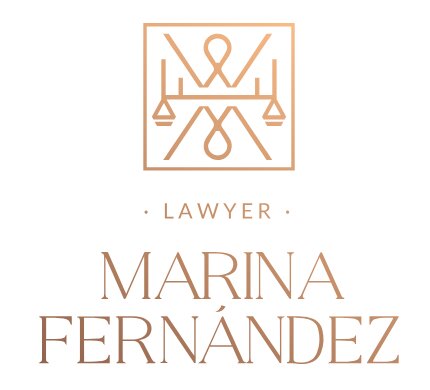Best Marriage Lawyers in Marbella
Share your needs with us, get contacted by law firms.
Free. Takes 2 min.
Free Guide to Hiring a Family Lawyer
List of the best lawyers in Marbella, Spain
About Marriage Law in Marbella, Spain
Marbella, nestled in the sunny region of Andalusia, is not only a popular tourist destination but also an attractive locale for those wishing to tie the knot. Spanish marriage law applies uniformly across all regions, including Marbella. Both civil and religious marriages are recognized by Spanish law, and the legal requirements for marrying in Spain include providing certain documents, such as birth certificates and, in some cases, proof of dissolution of previous marriages if applicable. Couples often choose Marbella for its picturesque settings, combining legal formalities with a dream wedding location.
Why You May Need a Lawyer
There are several situations where legal assistance is beneficial when dealing with marriage in Marbella. These include, but are not limited to, verifying the legality of marriage documentation, understanding residency requirements, managing prenuptial agreements, and navigating the complexities of international marriage where different nationalities are involved. Legal advice can also be crucial in instances of marriage dissolution, inheritance rights, and the distribution of assets. Lawyers specializing in family law can provide invaluable guidance when interpreting and complying with Spanish marriage laws.
Local Laws Overview
When planning a marriage in Marbella, it’s important to understand the local laws. Key aspects include:
- Both parties must be at least 18 years old and demonstrate legal capacity to marry.
- Civil weddings can be performed at the civil registry, the district court, or in town halls where residency is established.
- Religious ceremonies must comply with civil marriage formalities to be legally recognized.
- Non-residents may face additional procedures, such as acquiring a certificate of no impediment (Certificado de No Impedimento) from their home country.
- Same-sex marriages are legal and have equal recognition under Spanish law.
Frequently Asked Questions
1. Can foreigners get married in Marbella?
Yes, foreigners can marry in Marbella; however, they may need to supply additional documentation, such as a certificate of no impediment from their home country.
2. What documents are required for marriage?
Typical documents include valid passports, birth certificates, a certificate of no impediment, and in cases of previous marriages, divorce decrees or death certificates of former spouses.
3. Are there residency requirements?
At least one party must have been a resident in Spain for the two preceding years or be registered in the local Ayuntamiento for at least a few weeks depending on the jurisdiction.
4. What is a civil marriage in Spain?
A civil marriage is a non-religious legal marriage performed by a justice of the peace, mayor, or authorized public official that is fully recognized by Spanish law.
5. How is a marriage annulled?
A marriage can be annulled in Spain if it does not meet specific legal requirements, and this process typically involves a court decision declaring the marriage invalid.
6. Can I have a religious ceremony?
Yes, religious ceremonies are possible but must be complemented with civil registration; otherwise, they won't be considered legally binding.
7. Is a prenuptial agreement enforceable in Marbella?
Yes, prenuptial agreements are enforceable in Spain, provided they meet legal formality requirements and are translated if not in Spanish.
8. What happens if we divorce?
Divorce in Spain involves distributing marital assets, determining spousal support, and resolving custody issues if there are children involved.
9. Are foreign marriages recognized in Marbella?
Yes, marriages performed abroad are generally recognized in Spain, provided they were legally conducted in the country where they took place.
10. How can I prove my marriage is legal?
Post-wedding, you will receive a Libro de Familia (Family Book) which serves as a record of your marriage and any children you may have together.
Additional Resources
For further assistance, consider contacting the following resources:
- The Civil Registry Offices in Marbella for marriage formalization and registration.
- The Spanish Embassy or Consulate in your country for document authentication and legal advice.
- The Instituto de la Mujer for guidance on family and marriage-related issues.
- Local legal firms specializing in family law and international marital law.
Next Steps
If you need legal assistance regarding marriage in Marbella, consider following these steps:
- Consult with a local lawyer specializing in family or matrimonial law.
- Gather all necessary documentation and ensure they are translated and authenticated as required.
- Contact the civil registry to understand specific procedural requirements.
- Plan ahead by booking appointments and consultations in advance to avoid last-minute hurdles.
Lawzana helps you find the best lawyers and law firms in Marbella through a curated and pre-screened list of qualified legal professionals. Our platform offers rankings and detailed profiles of attorneys and law firms, allowing you to compare based on practice areas, including Marriage, experience, and client feedback.
Each profile includes a description of the firm's areas of practice, client reviews, team members and partners, year of establishment, spoken languages, office locations, contact information, social media presence, and any published articles or resources. Most firms on our platform speak English and are experienced in both local and international legal matters.
Get a quote from top-rated law firms in Marbella, Spain — quickly, securely, and without unnecessary hassle.
Disclaimer:
The information provided on this page is for general informational purposes only and does not constitute legal advice. While we strive to ensure the accuracy and relevance of the content, legal information may change over time, and interpretations of the law can vary. You should always consult with a qualified legal professional for advice specific to your situation.
We disclaim all liability for actions taken or not taken based on the content of this page. If you believe any information is incorrect or outdated, please contact us, and we will review and update it where appropriate.














